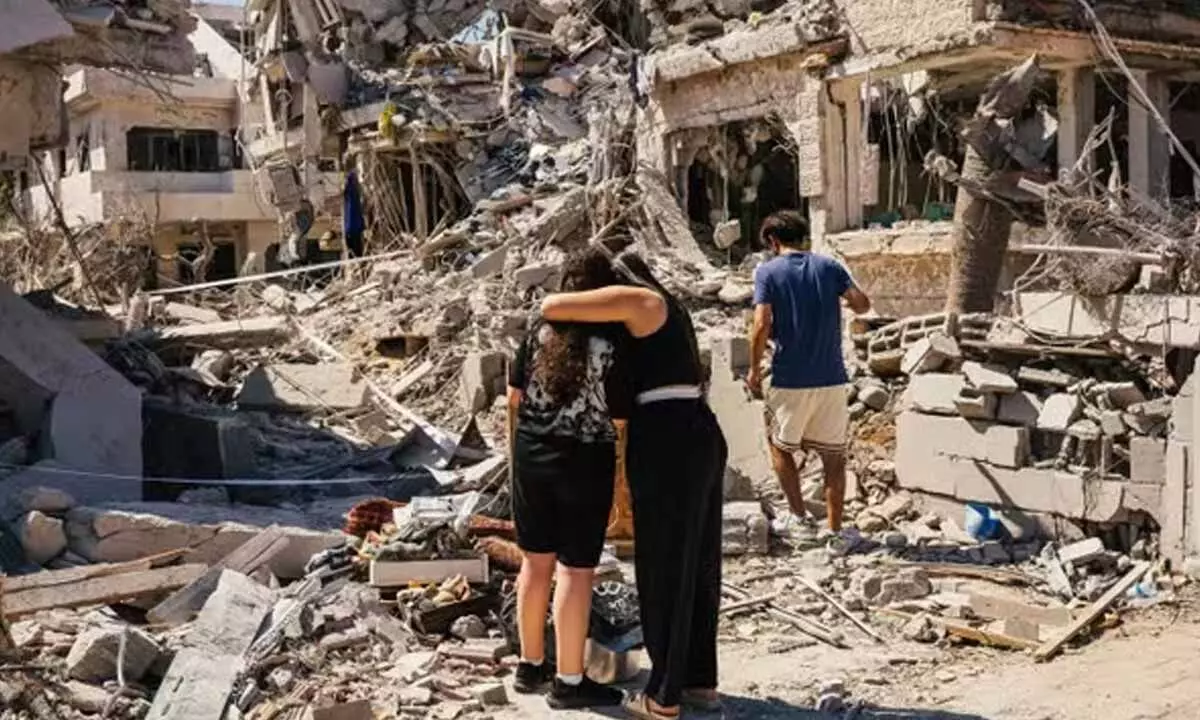The world watches with bated breath as the long-simmering animosity between Israel and Iran erupts into full-blown warfare, threatening to engulf the entire Middle East in unprecedented chaos.
What began as a series of proxy skirmishes and cyber sabotage has now spiralled into a volatile and direct confrontation, sparking fears of a regional war with global repercussions.
From Cold War to Inferno
For years, Israel and Iran have engaged in a shadow war—an intricate dance of covert operations, assassinations, and airstrikes primarily playing out in Syria, Lebanon, and through Iran’s network of militant proxies.
However, the events of the last few weeks have stripped away that covert veneer.
On June 10, 2025, Iran launched a barrage of ballistic missiles aimed directly at Israeli military installations in the Negev Desert and Haifa.
The Islamic Revolutionary Guard Corps (IRGC) claimed responsibility, citing Israeli airstrikes in Damascus that allegedly killed several high-ranking Iranian advisors.
Israel’s response was swift, overwhelming, and unprecedented in scope.
Within hours, the Israeli Air Force retaliated with wave after wave of airstrikes targeting IRGC positions across Iran’s western provinces, military research facilities near Isfahan, and suspected nuclear enrichment sites.
Prime Minister Benjamin Netanyahu, in an emergency address to the Knesset, declared, “We will not allow Iran to threaten the existence of the Jewish state. The gloves are off. Israel will do whatever it takes to dismantle this axis of terror.”
A Regional Powder Keg
The escalation has triggered a domino effect across the region.
Hezbollah, Iran’s most potent proxy in Lebanon, launched hundreds of rockets into northern Israel, triggering a full-scale Israeli ground incursion into southern Lebanon—the largest since the 2006 war.
In Iraq, Iranian-backed militias have mobilized, attacking American bases and Israeli-linked interests.
The Red Sea and Persian Gulf have also seen an uptick in hostile naval activity.
An Israeli cargo ship was struck by an Iranian drone near the Strait of Hormuz, and Tehran accused Israeli submarines of sabotaging two of its oil tankers.
Yemen’s Houthi rebels, another Iranian proxy, declared “open war” on Israel, launching missile salvos toward Eilat, prompting fears that Israel could be drawn into another front in the south.
Meanwhile, Jordan and Saudi Arabia have ramped up air defense deployments, with King Abdullah of Jordan warning, “Any spillover of this conflict into our borders will be met with decisive force.”
Humanitarian Crisis Unfolds
As missiles rain down and fighter jets roar through the skies, the human toll mounts alarmingly.
Thousands of civilians across Israel, Lebanon, Syria, and western Iran have been displaced.
Hospitals in Tel Aviv, Beirut, and Tehran are operating under emergency conditions.
In Tehran, panicked residents queue for fuel and basic supplies as rumours of Israeli cyberattacks on the country’s infrastructure spread.
Electricity grids have suffered outages, while internet access in major cities has been sporadic at best.
The United Nations has called for an immediate ceasefire, with Secretary-General António Guterres warning that “the current trajectory points toward catastrophe.”
“The Middle East is at a tipping point,” Guterres said. “The escalation between Israel and Iran has the potential to ignite a regional war that could draw in global powers and upend the international order.”
Global Reactions and Diplomatic Impasse
The United States has publicly backed Israel’s right to self-defence but is urging restraint. President Donald Trump, in a televised address, confirmed the deployment of an additional aircraft carrier strike group to the Mediterranean, stating that Washington “will not allow this conflict to threaten global stability or endanger our allies.”
Russia and China have condemned Israeli airstrikes on Iranian territory, calling them “aggressive and reckless,” while simultaneously criticizing Iran’s provocations.
Moscow has called for an emergency session of the UN Security Council, but so far, diplomatic efforts have failed to halt the spiral.
Turkey and Qatar are reportedly working behind the scenes to mediate, though sources indicate that neither Israel nor Iran is currently amenable to negotiations.
A War with No Clear Endgame
What makes this conflict particularly perilous is the absence of a clear endgame.
Unlike past flare-ups, this is not a limited operation.
Both sides appear locked in a deadly calculus of deterrence and dominance.
Israel is determined to destroy Iran’s nuclear ambitions and dismantle its regional network of militias.
Iran, equally resolved, views Israeli attacks as an existential threat and a challenge to its strategic sovereignty.
Dr. Laila Farhadi, a geopolitical analyst at the University of London, warns, “This isn’t just a clash of armies—this is a clash of ideologies, identity, and influence. It’s a zero-sum game. And in such games, civilian lives become the collateral.”
What Next?
As the war rages on, the international community faces a daunting challenge: how to de-escalate a conflict that both parties see as existential.
Peace feels elusive. Yet the cost of continued fighting—economic collapse, massive refugee displacement, and a wider regional implosion—may eventually force a reckoning.
For now, the Middle East burns. And the world, once again, teeters on the edge of a much wider fire.
Stay with us for continuous updates on this developing story.







